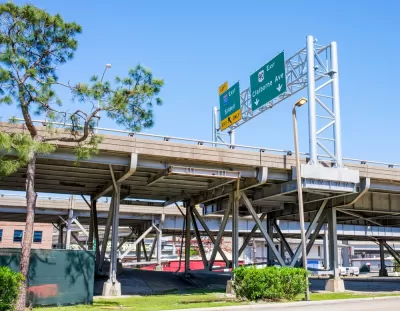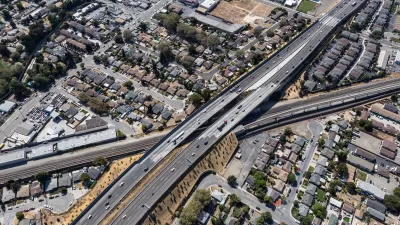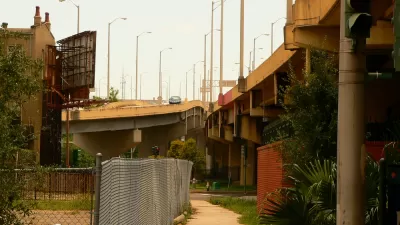Applications to the program reveal a pattern of state agencies requesting funds for projects that perpetuate car-centric development with only nominal equity components.

A new federal program aimed at ‘Reconnecting Communities’ divided and displaced by freeway construction could backfire, a coalition of community advocates warns. As Kea Wilson explains in Streetsblog, the group is concerned that the expansion of the range of projects that could be funded by Reconnecting Communities could dilute the program’s goals and perpetuate auto-centric development rather than mitigating and reversing the damage caused by freeways and urban renewal projects.
According to an open letter from the coalition to Transportation Secretary Pete Buttigieg, “The Reconnecting Communities program has the power to remedy the injustices of our previous infrastructure investments and recalibrate our transportation priorities so that they support underserved communities, but it is too small to spend any of its funding on projects that might come at their expense.”
Wilson describes several projects that would even expand highways using Reconnecting Communities funds, quoting Ben Crowther, advocacy manager for America Walks, who commented that the number of applications that perpetuate highway-building point to “a pattern of behavior” that uses “equity-washing” to maintain the status quo. Crowther says the small scale of the program so far means USDOT must act selectively to fund projects that are “truly reparative.”
FULL STORY: Advocates Warn ‘Reconnecting Communities’ Program Could Actually Expand Highways

Alabama: Trump Terminates Settlements for Black Communities Harmed By Raw Sewage
Trump deemed the landmark civil rights agreement “illegal DEI and environmental justice policy.”

Planetizen Federal Action Tracker
A weekly monitor of how Trump’s orders and actions are impacting planners and planning in America.

How Atlanta Built 7,000 Housing Units in 3 Years
The city’s comprehensive, neighborhood-focused housing strategy focuses on identifying properties and land that can be repurposed for housing and encouraging development in underserved neighborhoods.

In Both Crashes and Crime, Public Transportation is Far Safer than Driving
Contrary to popular assumptions, public transportation has far lower crash and crime rates than automobile travel. For safer communities, improve and encourage transit travel.

Report: Zoning Reforms Should Complement Nashville’s Ambitious Transit Plan
Without reform, restrictive zoning codes will limit the impact of the city’s planned transit expansion and could exclude some of the residents who depend on transit the most.

Judge Orders Release of Frozen IRA, IIJA Funding
The decision is a victory for environmental groups who charged that freezing funds for critical infrastructure and disaster response programs caused “real and irreparable harm” to communities.
Urban Design for Planners 1: Software Tools
This six-course series explores essential urban design concepts using open source software and equips planners with the tools they need to participate fully in the urban design process.
Planning for Universal Design
Learn the tools for implementing Universal Design in planning regulations.
Jessamine County Fiscal Court
Caltrans
Institute for Housing and Urban Development Studies (IHS)
City of Grandview
Harvard GSD Executive Education
Toledo-Lucas County Plan Commissions
Salt Lake City
NYU Wagner Graduate School of Public Service





























